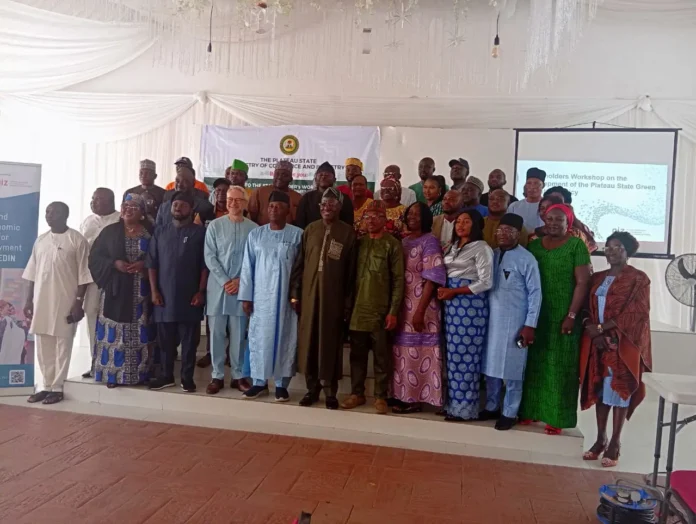The Plateau State Government has intensified efforts to reposition its industrial sector for sustainable growth with the commencement of work on a State Green Industrial Policy.
The process kicked off with a stakeholders’ workshop and the inauguration of a Technical Working Group (TWG) to drive the initiative. The workshop, supported by the Deutsche Gesellschaft für Internationale Zusammenarbeit – Sustainable Economic Development Cluster (GIZ-SEDEC), brought together government officials, private sector players, academia, development partners, and the media.
Delivering an overview, Professor Chris Kwaja said the proposed policy would not only safeguard the environment but also unlock opportunities in green jobs, eco-friendly manufacturing, and climate-smart agriculture.
“The green economy is not just about the environment; it is about jobs, resilience, and a better future for our people. Plateau can lead the way in Nigeria’s green transformation,” he stated in a paper titled Understanding Green Industrial Policy: Opportunities for Plateau State.
Governor Caleb Mutfwang, represented by the Secretary to the Government of the State, Samuel Jatau, inaugurated the TWG, describing the effort as “a significant step in our collective journey towards building a sustainable, inclusive, and environmentally responsible industrial future for Plateau State.”
He stressed that while the State is endowed with fertile land, rich resources, and an entrepreneurial population, it must address climate change, environmental degradation, and unsustainable practices to achieve balanced growth.
“The Green Industrial Policy will provide a clear framework to foster eco-friendly manufacturing, create green jobs, promote renewable energy, and attract responsible investments aligned with our environmental goals,” Mutfwang said, urging the group to be diligent and inclusive in their work.
Commissioner for Commerce and Industry, Mohammed Nyalun, who also chairs the TWG, described the initiative as “an opportunity to shape a future where industries thrive, investments flow, and citizens benefit from sustained economic growth.”
Representatives of GIZ Nigeria, including Markus Wauschkuhn and Ben Osawe, pledged ongoing technical support in policy formulation, capacity building, and stakeholder engagement, noting that a strong industrial base is critical to sustainable development and poverty reduction.
The TWG comprises representatives from government agencies, the private sector, development partners, academia, and the media.


